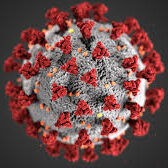Another hurdle has been cleared relating to a gene therapy for Duchenne muscular dystrophy. FDA advisors voted in favor of accelerated approval for this Ohio founded treatment option.


What is the cost of low cost genetic testing? The DNA Exchange explores the expansion of genetic testing laboratories, their profitability, and insurance coverage of genetic testing.
Does everyone have a Doppelganger? Probably not, but see what Dr. Manel Esteller and his team are learning about non-related individuals who appear remarkably similar to each other.


In this study, Ohio researchers found that mainstreaming germline genetic testing for patients with pancreatic cancer increases uptake of testing. Importantly, at least one pathogenic or likely pathogenic variant was found in 13.9% of patients in the study.
For the past few years, gene editing – especially CRISPR – has been a hot topic in the media. This article by LaMotte investigates a “less damaging” technology called base editor that is currently being researched at Harvard.


Those with psychiatric diagnoses are likely to benefit from genetic counseling, regardless of time elapsed since diagnosis or symptom onset. Read here to learn more.
Screening for genetic disorders estimates the risk of developing a condition, but is not meant to provide a diagnosis. Have questions about the recent NYT article on noninvasive prenatal testing? Read a genetic counselor’s response in Forbes.


Individuals of non-European descent are more likely to have variants of uncertain significance identified on genetic testing. Read why this happens and some suggestions for improving this disparity here.
Over 15 years after Katharine Moser elected to have predictive testing for Huntington’s disease and found out that she will develop the condition, the New York Times catches up on her life, advocacy, and thoughts. Read her story here.


Polygenic risk scores (PRS) are an area of research in disease groups like breast cancer and cardiovascular disease, but what happens when they are applied to reproductive genetics and IVF? Genetic counselor Laura Hercher explores the ethics and practicalities of this testing here.
Powerful words by Ohio genetic counselor Jordan Brown, MA, MS, CGC: “Let us disrupt the culture of “nice” within our organization so we can truly be unabashed advocates for ourselves and our patients.” Read her complete essay and call to action on reproductive rights and ongoing legislative efforts to decrease access to abortion services.


April is Autism Awareness Month. This NYT article provides perspective on the challenges of considering the behavior patterns of children and seeking a developmental evaluation in this time of increased social isolation.
As genetic counselors, we often think about the clinical utility of whole exome and whole genome sequencing. This case, however, shows the implications of genetic testing on a longstanding legal case. Read about it in this NYT article.


Check out what researchers at the University of Maryland School of Medicine have been doing! They recently published a new analysis of sequencing data of > 53,000 individuals, primarily from minority populations. This is one of the most diverse data sets of high-quality whole genome sequencing.
Progeria is a rare, genetic disorder that leads to rapid and premature aging. The Food and Drug Administration recently approved a drug, Zokinvy, that can extend the lives of children with this condition. You can listen and/or read more about it in this NPR article.


Research on the novel coronavirus, SARS-CoV-2, identifies how certain genetic variants can play a role in the severity of symptoms of COVID-19 patients. Read more about the research findings in this Science Magazine article.
CRISPR has revolutionized the way Genetic research is done. This article is an interview with Jennifer Doudna discussing what’s next. Doudna, PhD, of the University of California Berkely and Emmanuelle Charpentier, PhD of the Max Planck Institute in Germany share this year’s Noble Prize in Chemistry for the discover of CRISPR. Read the full interview here.


In case you were not aware, September is National Sickle Cell Disease Awareness Month. See how CRISPR is playing a role in treating this disorder. Click here for the full story on NPR.
FDA approves first oral medication for Spinal Muscular Atrophy . See full press release for details.
